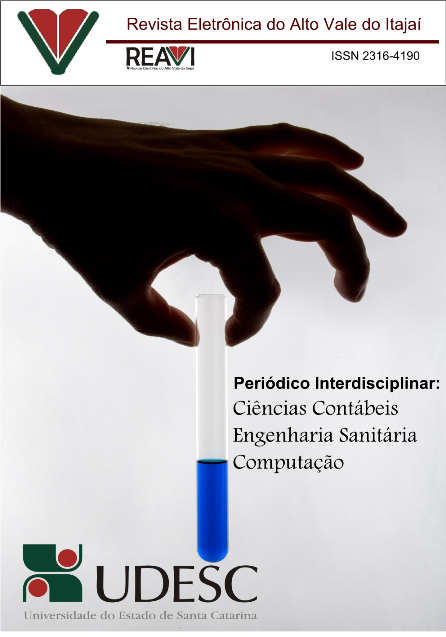Métodos para reduzir incertezas na elaboração do orçamento de caixa
DOI:
https://doi.org/10.5965/2764747103052014099Palavras-chave:
fluxo de caixa, orçamento, incertezas, contabilidade, orçamento empresarialResumo
Atualmente, as empresas convivem em um cenário onde a competitividade é um fator limitante à sobrevivência. Muitos empresários não conseguem administrar de forma eficaz seus empreendimentos, por desconhecerem as técnicas e ferramentas de gestão, principalmente no que diz respeito aos aspectos financeiros. O orçamento do fluxo de caixa é um modelo de previsões capaz de atender as necessidades da gestão financeira, visto que a administração do caixa influencia diretamente na capacidade de pagamento, liquidez e nos resultados das empresas. O objetivo do estudo constitui em abordar a relevância do fluxo de caixa, como uma ferramenta de auxilio nas tomadas de decisões e de melhoria dos recursos financeiros das empresas e apresentar alguns métodos para mitigar as incertezas nas previsões do orçamento. A metodologia utilizada neste estudo caracterizou-se como descritiva, por meio de uma pesquisa bibliográfica, com abordagem qualitativa. Os resultados do levantamento bibliográfico apontaram três principais métodos utilizados para redução da incerteza na elaboração do orçamento de fluxo de caixa: análise de sensibilidade, análise de cenários e método de Monte Carlo. O método de Monte Carlo aparece em diversos estudos como o mais eficaz na mitigação dos riscos de previsão, pois através dele pode-se analisar probabilisticamente diversos cenários possíveis.
Downloads
Referências
CAMPOS FILHO, A. Demonstração dos fluxos de caixa: uma ferramenta indispensável para administrar sua empresa. São Paulo: Atlas, 1999.
CARDOSO, D.; AMARAL, H. F.O Uso da simulação de Monte Carlo na elaboração do fluxo de caixa empresarial: uma proposta para quantificação das incertezas ambientais. In: Encontro Nacional de Engenharia de Produção – ENEGEP, 2000.
CRUZ JUNIOR, J. B. Século XXI: ameaças e oportunidades para as pequenas empresas brasileiras. Revista de Ciências da Administração da UFSC. Florianópolis: UFSC, 1998.
FERNANDES, C. Gerenciamento de riscos em projetos: como usar o Microsoft Excel para realizar a Simulação Monte Carlo. 2005.
GITMAN, L. J. Princípios de administração financeira. 7 ed. São Paulo, Harbra, 1997.
ROGERS, P.; ROGERS, D.; RIBEIRO, K. C. S. Avaliando o Risco nas Decisões de Orçamento Empresarial: Uma Aplicação Prática do Método de Monte Carlo. In: XI CONGRESSO BRASILEIRO DE CUSTOS, 2004, Porto Seguro. 2004.
SANCHEZ, L. E. Avaliação de impacto ambiental: conceitos e métodos. São Paulo: Oficina de Textos, 2006.
Downloads
Publicado
Como Citar
Edição
Seção
Licença
Copyright (c) 2014 Camila Schmeider, Leandro Marques, Marino Luiz Eyerkaufer

Este trabalho está licenciado sob uma licença Creative Commons Attribution 4.0 International License.














